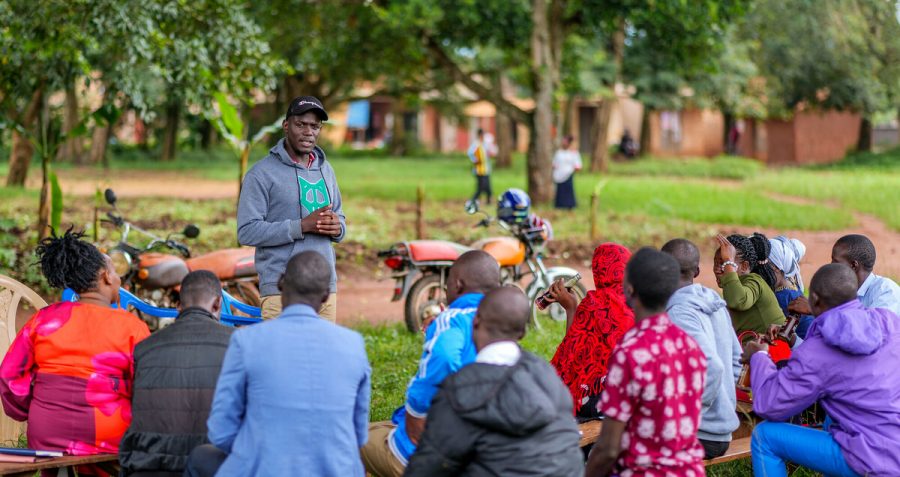Young Advocates Empowerment Project

Key information
- Organisation: Child Rights Empowerment and Development Organisation (CEDO)
- Country: Uganda
- Region: Western and Central Africa
- Stage of innovation: Stage 3: Pilot
- Start date: 2021
- End date: 2022
- Type of innovation: Service delivery innovation: a new or different way of providing a service.
- Budget: 96,773,558 UGX
Summary of intervention
The Young Advocates Empowerment project in Uganda registered 20 peer educators as a district level Young Advocates Coalition. It has linked them to existing networks, such as Uganda Young Positives and Youth Advocacy and Development Network Uganda to build their capacities to advocate for better sexual and reproductive health and rights (SRHR) services tailored to young people’s needs.
Young advocates participated in the 2022 Y+ Summit, adopting the theme “We’ve got the voice, pass us the mic”, presenting best practices in services for young people living with HIV. The Coalition conducted sub-county level public engagements with government representatives, reaching 480 policy influencers and budget holders. Young advocates raised issues including commodity stock-outs for self-care services (STI, HIV and family planning); lack of health facility youth corners; lack of police stations leading to high sexual and gender-based violence cases; limited knowledge on PEP and PrEP services; stigma and discrimination; health care workers’ attitudes towards key populations; and inconvenient health facility opening times for young people.
District dialogues followed to disseminate findings and advocate for these issues, plus meaningful involvement of young people on Health Unit Management Committees (HUMCs). Results of a consultation with 20 young people, including sex workers, people living with HIV, fisher folks, slum dwellers and men who have sex with men also contributed. Issues included HIV prevention, PrEP, SRHR (pregnancy testing, HIV self-testing, STI self-testing, oral and self-injectable hormonal contraceptives).
Through the coalition, young people’s voices have been captured and disseminated via videos and fact sheets to inform district stakeholders on how they wish existing SRHR issues to be addressed.
learnings
Capturing young people’s voices through consultations on self-care service provision, involving youth on Health Unit Management Committees (HUMCs), and provision of youth-friendly corners has successfully provided an insight into what young people believe will improve their access to SRHR services. The majority think that self-care services are only meant for key populations, which limits access by others who may be at risk.
The health facilities currently providing self-care services are facing challenges in accounting for kits (STI, HIV pregnancy self-testing kits and family planning). For example, when young people, especially from key populations, are given kits, they sometimes do not report back to the health care workers who issued the kits. This reinforces health care workers’ negative attitudes towards young people, especially from key populations.
next steps
Peer Advocates will follow up on the consultations and district dialogues and monitor progress. The newly constructed/created sub counties such as Buraru and Kabale sub-counties in Hoima district have limited resources at the moment but are positive about integrating with the Peer Advocate work plan and addressing some of the identified SRH gaps once resources allow following budgeting processes.
To address the accountability issue with KPs using self-care kits, it is recommended that Youth Advocates work with Village Health Teams who will handle self-testing and be responsible for accountability for the kits. It is also recommended that the Peer Advocates make referrals in case the client discloses his/her health status upon conducting self-testing.
sustainability
Documenting voices and opinions into fact sheets and videos enables young people’s engagement with local government stakeholders, and also increases young people’s ownership of the project, building sustainability — even when funding comes to an end.
The Peer Advocates’ work plans will be incorporated into the sub-county master plans, contributing to sustainability beyond programme funding.

